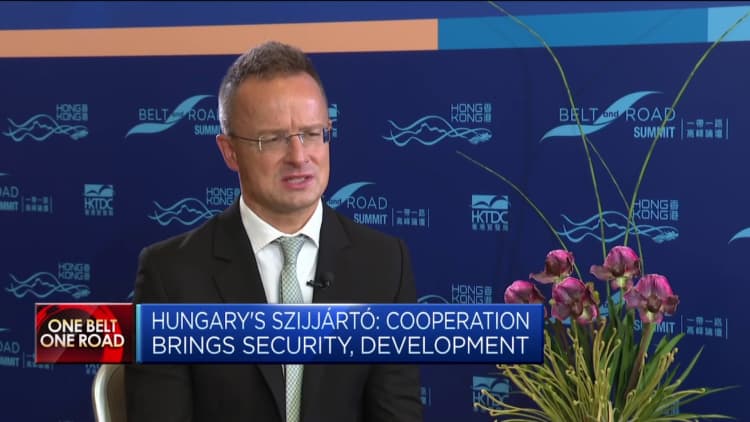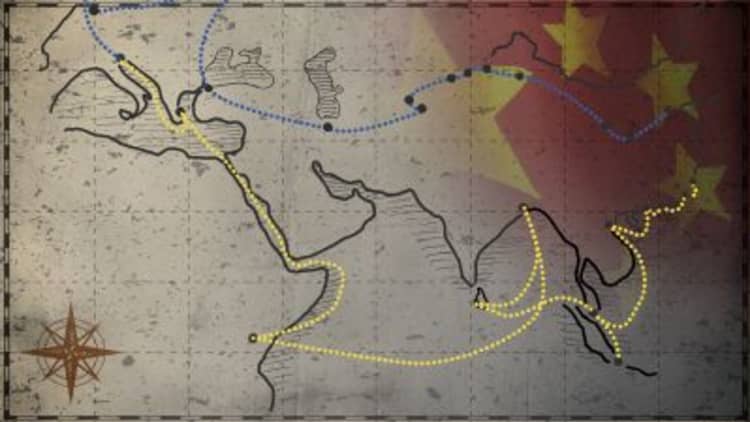EU should have ‘isolated’ the Ukraine war, Hungarian foreign minister says

Hungary’s Foreign Minister Peter Szijjarto.
Thierry Monasse | Getty Images News | Getty Images
The European Union should have “isolated” the Ukraine war, Hungary’s foreign minister told CNBC in an interview broadcast Wednesday.
The “European Union should have isolated this war in Ukraine, but instead of that [the] European Union has globalized the war,” Péter Szijjártó said from the Belt and Road Summit in Hong Kong.
Szijjártó criticized Europe’s response to the conflict, saying it was causing division between the East and West.

“One of the global impacts of the war is that the world seems to be divided into blocks again and this is bad because if there’s no communication between countries, in case there’s no cooperation between the countries, then you basically give up the hope for peace,” he said.
The European Union did not immediately respond to CNBC’s request for comment.
This is not the first time Hungary’s foreign minister has condemned the EU’s handling of Russia’s full-scale invasion of Ukraine. Szijjártó said in January that Brussels’ sanctions against Russia had obviously “not fulfilled expectations” and had damaged European economies more than Russia.
“Russia’s economy is not on its knees, definitely. We can have different assessments of how badly they perform but they’re not on their knees, and the war is not coming to its end. And Europe’s economy is suffering more from sanctions than the Russian economy,” he told CNBC at the World Economic Forum in Davos.
‘Europe is in a bad shape’
Speaking from the Belt and Road Summit, Szijjártó highlighted how successful he thought the Belt and Road Initiative, a spending plan intended to strengthen trade infrastructure between China and around 150 other countries, would be.
“BRI is not only going to survive, but is going to be more and more successful … because all the participants, including the European countries, are taking a lot of benefits out of it,” he said.

“Europe is in a bad shape, economically and security-wise as well, so we need partners of cooperation who are successful, who are giving up impetus, who are giving us the chance to grow more rapidly,” he added.
The initiative was initially launched in 2013 by Chinese President Xi Jinping, but the ambitious strategy has met a myriad of hurdles in the last decade, both politically and logistically.




